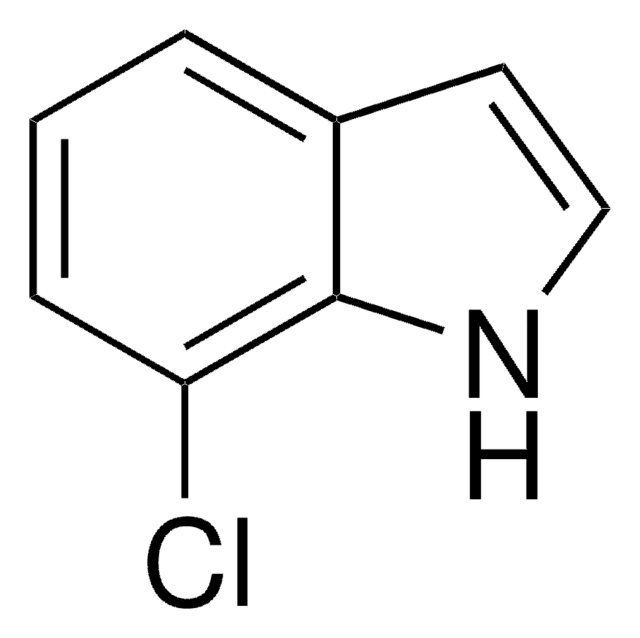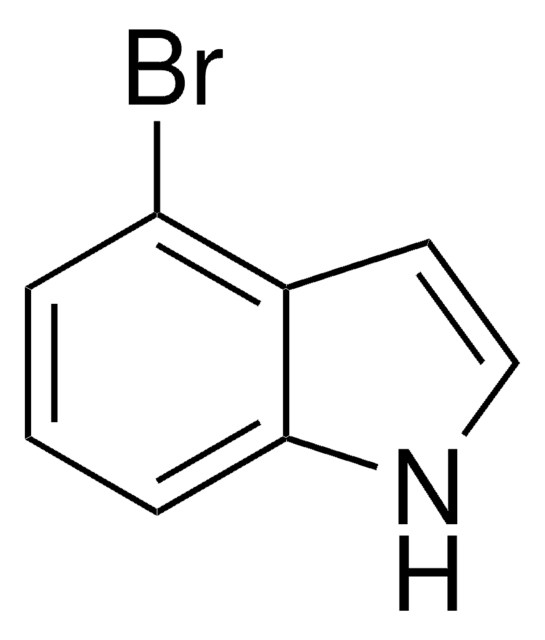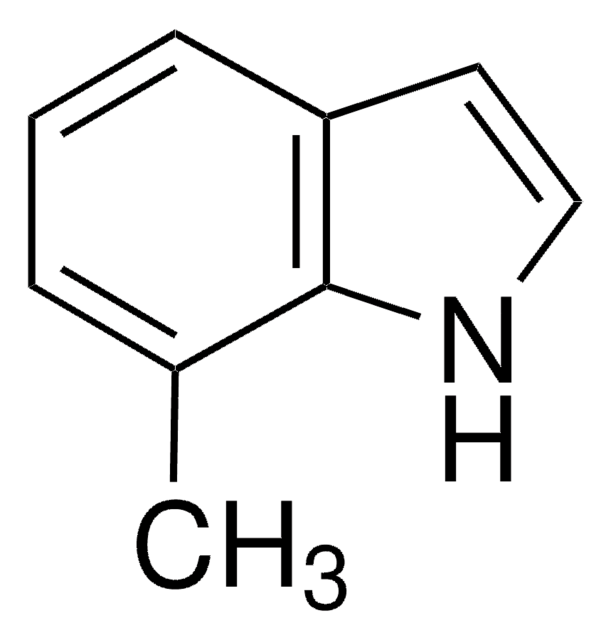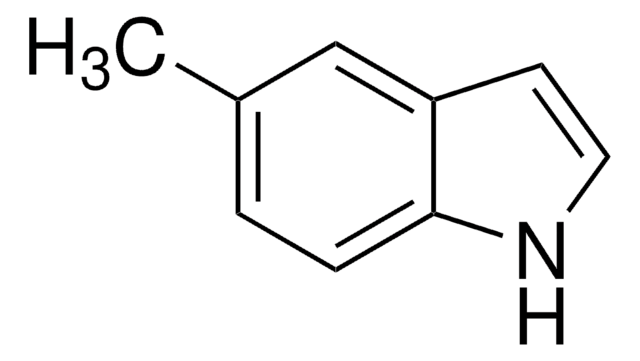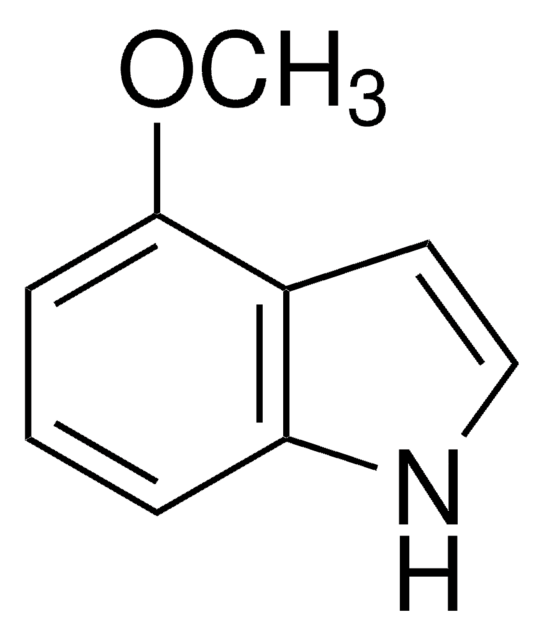All Photos(1)
About This Item
Empirical Formula (Hill Notation):
C8H6ClN
CAS Number:
Molecular Weight:
151.59
Beilstein:
112345
EC Number:
MDL number:
UNSPSC Code:
12352100
PubChem Substance ID:
NACRES:
NA.22
form:
solid
Assay:
99%
Recommended Products
Quality Level
Assay
99%
form
solid
mp
87-90 °C (lit.)
solubility
ethanol: 50 mg/mL, clear, colorless to faintly yellow
functional group
chloro
SMILES string
Clc1ccc2cc[nH]c2c1
InChI
1S/C8H6ClN/c9-7-2-1-6-3-4-10-8(6)5-7/h1-5,10H
InChI key
YTYIMDRWPTUAHP-UHFFFAOYSA-N
Looking for similar products? Visit Product Comparison Guide
General description
6-Chloroindole, when added to Claviceps purpurea, produced the corresponding substituted L-tryptophan.
Storage Class Code
11 - Combustible Solids
WGK
WGK 3
Flash Point(F)
Not applicable
Flash Point(C)
Not applicable
Personal Protective Equipment
dust mask type N95 (US), Eyeshields, Gloves
Choose from one of the most recent versions:
Already Own This Product?
Find documentation for the products that you have recently purchased in the Document Library.
Customers Also Viewed
Jeongchan Lee et al.
Chembiochem : a European journal of chemical biology, 21(10), 1446-1452 (2020-01-10)
Tryptophan halogenases are found in diverse organisms and catalyze regiospecific halogenation. They play an important role in the biosynthesis of halogenated indole alkaloids, which are biologically active and of therapeutic importance. Here, a tryptophan 6-halogenase (SatH) from Streptomyces albus was
D S Fukuda et al.
Applied microbiology, 21(5), 841-843 (1971-05-01)
Claviceps purpurea has been shown to produce extracellular l-tryptophan from indole in stirred fermentors. The substrate specificity of this conversion was investigated by using substituted indoles, anthranilic acid, and 4-chloro-anthranilic acid. Addition of 2-, 4-, 5-, 6-, and 7-methyl indole
Jeongchan Lee et al.
Nature chemical biology, 17(1), 104-112 (2020-11-04)
Tyrian purple, mainly composed of 6,6'-dibromoindigo (6BrIG), is an ancient dye extracted from sea snails and was recently demonstrated as a biocompatible semiconductor material. However, its synthesis remains limited due to uncharacterized biosynthetic pathways and the difficulty of regiospecific bromination.
Chaitany Jayprakash Raorane et al.
Biomolecules, 10(8) (2020-08-23)
Multi-drug resistant Acinetobacter baumannii is well-known for its rapid acclimatization in hospital environments. The ability of the bacterium to endure desiccation and starvation on dry surfaces for up to a month results in outbreaks of health care-associated infections. Previously, indole
Anita Toulmin et al.
Journal of medicinal chemistry, 51(13), 3720-3730 (2008-06-19)
Partition coefficients were measured for 47 compounds in the hexadecane/water ( P hxd) and 1-octanol/water ( P oct) systems. Some types of hydrogen bond acceptor presented by these compounds to the partitioning systems are not well represented in the literature
Our team of scientists has experience in all areas of research including Life Science, Material Science, Chemical Synthesis, Chromatography, Analytical and many others.
Contact Technical Service


